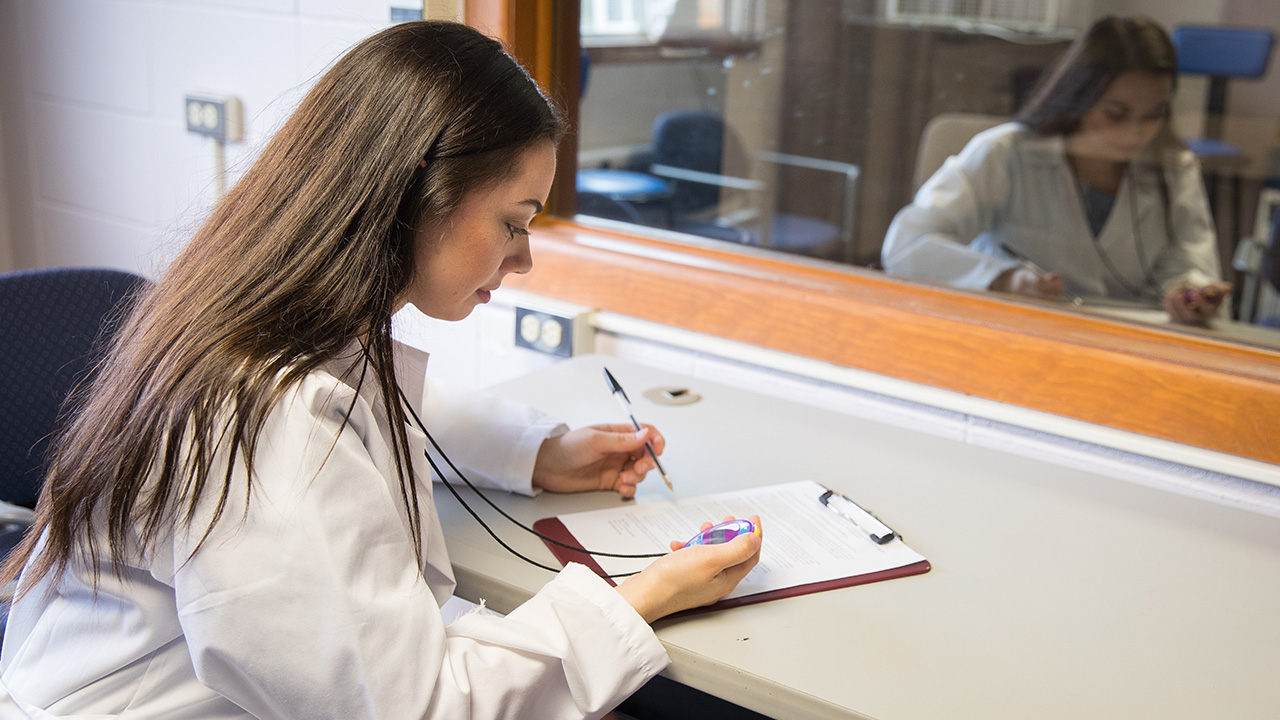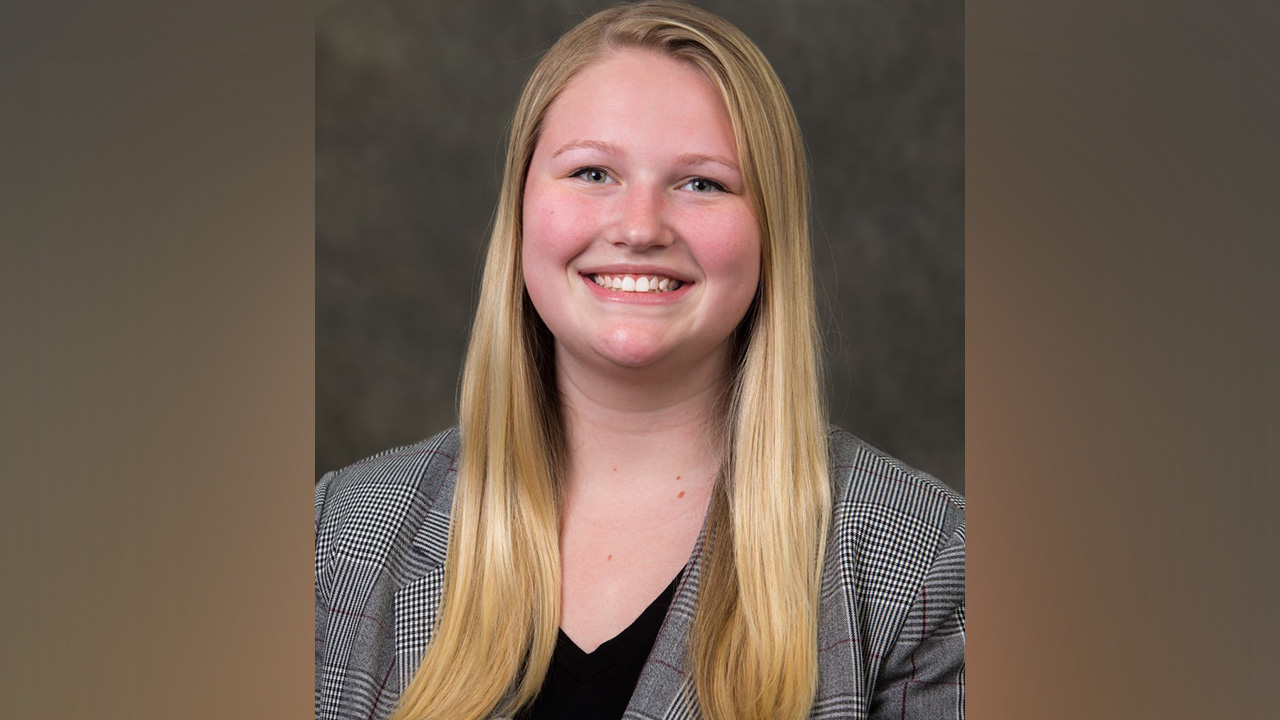Two recent University of Wisconsin-Platteville alumni, Kathryn Bartels and Dominique Kornely, have had their research work accepted for publication in academic journals. Both alumni are former participants of UW-Platteville’s Summer Undergraduate Scholars Program and credit the program for their success.
Now entering its fourth year, the SUSP provides an intensive summer scholarly experience that prepares students for graduate studies, as well as helps enhance the culture of scholarship among students and faculty. Participants in the program have an opportunity to dive deep into their area of interest and work full time on a research project or creative activity. In addition to faculty mentorship, the program offers weekly group meetings to explore topics such as leadership development, research ethics, preparing for graduate school and developing scholarly presentations.
Bartels graduated from UW-Platteville in 2018 with a degree in criminal justice and history. She recently completed her Master of Science in global crime, justice and security at the University of Edinburgh in Scotland, and is currently applying to criminology doctorate programs.
Bartels’ paper, “Competing Exceptionalisms: A Commentary on Garland’s Characterisation of American Criminal Justice,” was published in Contemporary Challenges: The Global Crime, Justice and Security Journal. The article explores David Garland’s concept of modes of penal action to explain the contrast between American and Scandinavian penal exceptionalism. It also offers an extension to penal action, proposing that correctional officers are a crucial archetype of the power dynamics experienced at a national scale.
Kornely graduated from UW-Platteville in 2019 with a degree in psychology. She is currently earning her master’s degree in clinical psychology from the University of Northern Iowa.
Kornely’s manuscript, “Psychosocial Stress and Attitudes Toward Substance Use Among College Students: An Exploratory Study,” will be published in the Psi Chi Journal of Psychological Research. In her research, Kornely examined how acute psychosocial stress (i.e. induced by a stress task) and chronic stress (i.e. childhood adversity) were associated with college students’ attitudes toward engaging in substance use behaviors. The results indicated an association between expected future substance use behaviors with greater childhood adversity and perceiving there to be benefits of using substances.
Both alumni agreed that the research experiences and mentorship from faculty provided through the SUSP were critical factors in the success they found today.
“The Summer Undergraduate Scholars Program allowed me to develop my passion and skills for research,” said Bartels. “Its particular format matched my master’s dissertation format, and having had research experience was instrumental in my work and connection-building in graduate school. Also, the vibrant SUSP community we built has greatly encouraged my goals of pursuing a career in academia. I believe the SUSP strengthened my application and helped me get into one of the world’s top universities.”
Kornely agreed, adding that the sense of community the SUSP instilled was just as important as the research skills she learned.
“The Summer Undergraduate Scholars Program was a great learning experience,” said Kornely. “In addition to being able to spend a summer conducting my own research, I was able to gain knowledge and insight into the research of other students in various different areas. Being part of the SUSP program provided a way to learn about other subjects while collaborating with other researchers. I think what I enjoyed the most was being able to spend a summer with other students who were also passionate about their research. I made lifelong friendships in the SUSP program and got to build professional relationships with the professors that were also involved. In addition to research and networking, the SUSP program also provided professional development workshops where we could get feedback on our resumes, practice our scientific writing, and learn the process of getting a manuscript published. All of the things that I learned from the program helped me to become a better researcher overall.”
“Kathryn and Dominique were part of our inaugural SUSP cohort,” said Dr. Chris Underwood, associate professor of geography and chair of the new environmental science and conservation program. “That group set a high bar for subsequent scholars, as is evidenced by their continued successes. These women represent the best of undergraduate research, and serve as examples of what we want to continue to achieve with the program.”


